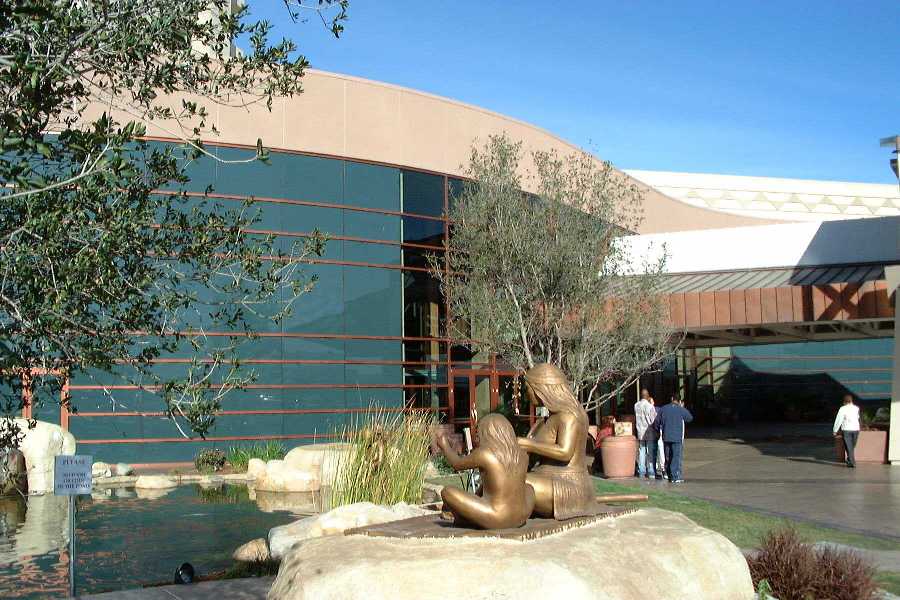Here's a good editorial summarizing the benefits of Props. 94-97:
Attorney for 2 tribes explains why propositions should pass
The $9 billion figure is uncertain, but whatever the figure is, it's in the billions.
One alleged argument against the gaming compacts is that they don't "guarantee" money to education. True, because the billions of dollars will go into the general fund, where they can be used for education, law enforcement, or any other pressing need. Education undoubtedly will get some money, so this argument is misleading at best.
Another alleged argument against the compacts is that they don't provide union protections. What that means is that unions aren't satisfied with the secret ballots they already have in the existing compacts. They want any new compacts to enforce a card-check system--in which union members must make their choice in front of everyone. The new compacts preserve the secret-ballot system.
Perhaps the most bogus argument against the compacts is that some tribes will benefit at the expense of others. Here are a couple of postings that refute the tribe vs. tribe claims:
Two tribes vs. many
Deceptive anti-compact ad
Finally, if you're libertarian or conservative, there are several reasons to vote for the propositions:
One other argument against the propositions: It's possible that along with creating jobs and generating income for the state and tribes, they'll increase crime and traffic. That would be true of any business expansion such as opening a new theme park or Wal-Mart. Our usual approach is to mitigate these problems, not to deny businesses the right to expand.
Really, about the only valid reason for voting against the compacts is if you oppose gambling on moral grounds. In that case, you may decide the increased gambling is bad. But gambling won't go away if you vote "no" on the propositions. It's here to stay.


5 comments:
Secret ballots and the right of workers not to have campaing contributions taken against their will. These both seem to be no-brainers to me, yet the unions across the board seem to oppose secret ballots, and they also take political money while making it hard for workers to opt out.
---
So, maybe I'm a little uneasy about gambling. However, I don't see a pressing need to regulate it much beyond prevention of fraud. When the government gets into counting slot machines, that seems to be an example of regulation we can get rid of.
Writerfella here --
The main argument given in most states so far when the prospect of Native gaming is on the ballot is that "organized crime" could gain inroads and act to the detriment of states which approve. Thus far, no such indicatives seemingly have occurred. BUT -- given the number of tribes in a given state vs. the population of that state actually can mean that "some tribes will benefit at the expense of others." Oklahoma is such a state, given that there are 35+ tribes and only the largest and early-entry tribes are benefitting from the franchises of Native gambling. But California is one of the most populous states in this US of A and so such an argument there would be spurious at best. Plus, since Oklahoma earmarked the funds coming from Native gambling strictly to education, there can be no other ancillary usage of such funds. However, the initial glowing estimates of Oklahoma's income from Native gambling and the state's own lotteries seriously were overestimated and now Oklahoma faces the possibility of reducing education's entitlement or the abrogation of legislation that allowed Native casinoes in the first place...
All Best
Russ Bates
'writerfella'
The situation in Oklahoma is different from the one in California. In Oklahoma, gaming tribes may well be cannibalizing each other's revenues.
After all, Oklahoma has about 80 Indian casinos for 3.5 million people. California has about 60 Indian casinos for 36.5 million people.
So Oklahoma has about one casino for every 44,000 people. California has one for every 608,000 people.
Therefore, the California market is underserved, as I said. We can host more casinos and slot machines before we reach Oklahoma's level of saturation.
P.S. The propositions won by a resounding 55-45% margin. The people have spoken and they want more slots.
Rob, I would not call 55%-45% "resounding", or any kind of mandate. If you round it just a little, it's 50-50.
A 10-point margin is considered significant in political votes. It's not considered close.
Whether "significant" translates to "resounding" is a judgment call. I called it resounding because the propositions were in danger of losing at one point.
Post a Comment